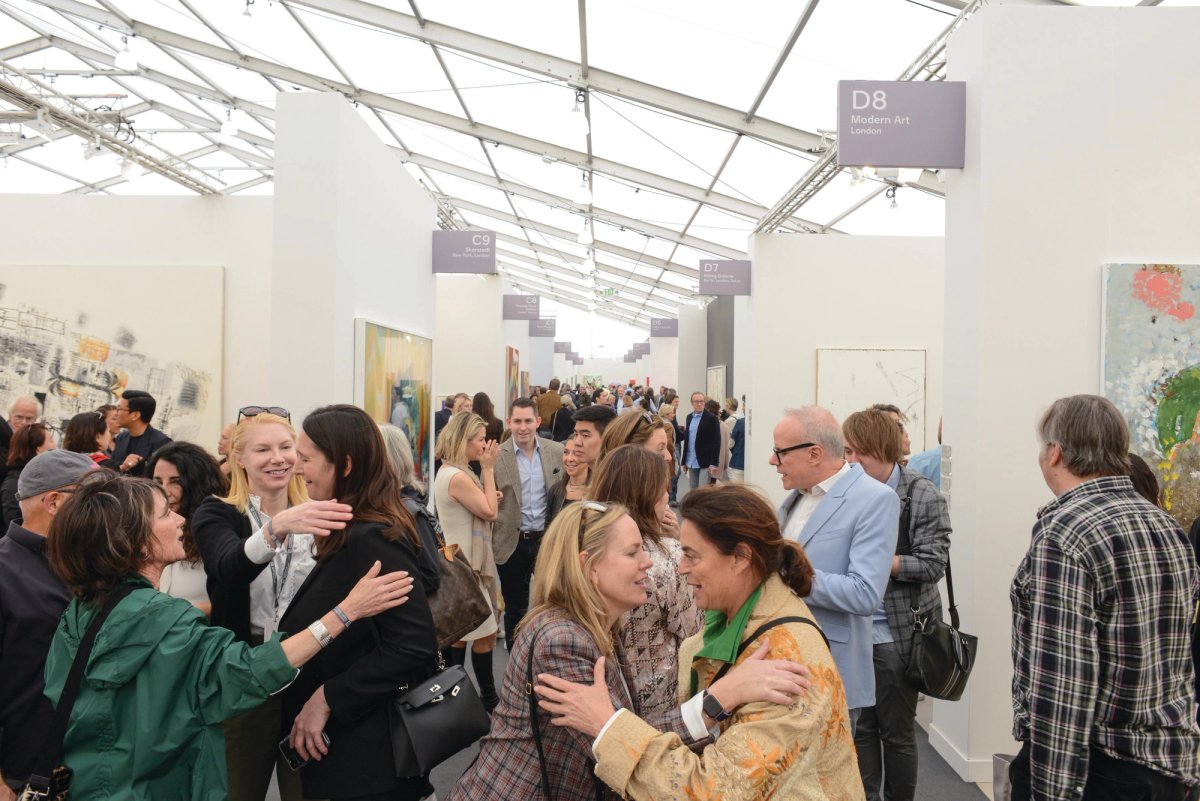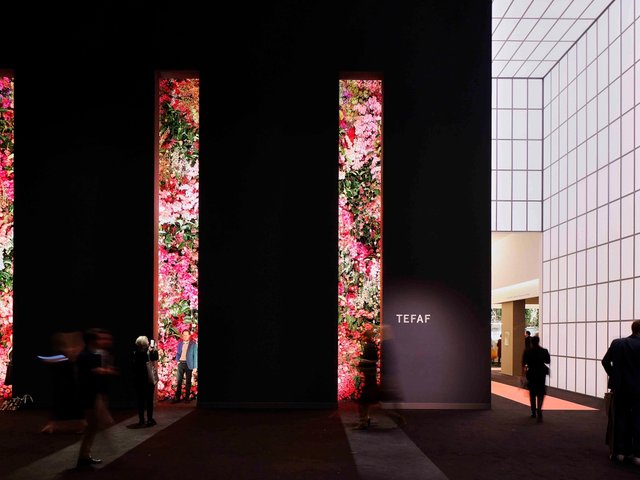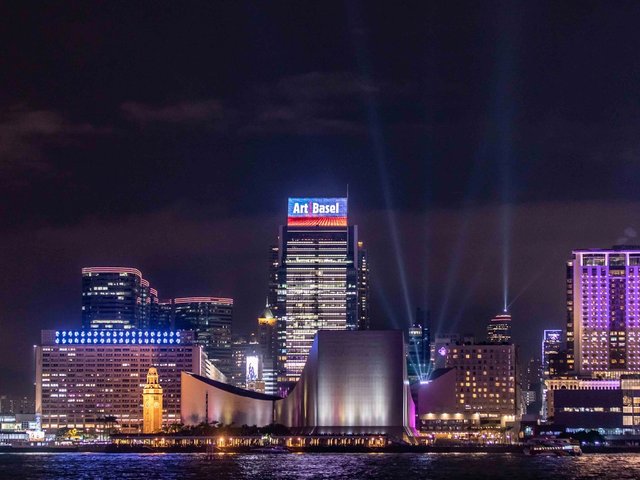The year 2020 was an annus horribilis for most businesses, but particularly for art fairs—from March onwards, it was pretty much game over for large-scale international events. With no insurance cover for coronavirus-related cancellations, many companies lost a lot of money and so, unsurprisingly, fair organisers are still jittery entering 2021, with repeated waves of the virus making many reluctant to commit to events until the summer at least.
“Based upon virtually all current predictions, we can expect a [mass rollout of a] vaccine by the middle of the year and we will start to see a return of international travel,” says Marc Spiegler, the global director of Art Basel. “It will not be the art world as we knew it from 2019 right away, but we know that people are longing to be able to see art in person again.”
This year will be one long game of musical chairs (or musical fairs) and the music has not stopped yet. Several veteran January fairs have bowed to the virus and cancelled their physical events, such as New York’s Americana-focused The Winter Show, with its 67th edition due to take place online from 19 to 31 January, and Brafa in Brussels, which is staging a Brafa in the Galleries event (27-31 January).
Asia opens up
Late 2020 saw numerous physical events actually happen in Asia (including two major fairs in Shanghai and Fine Art Asia in Hong Kong in November). The main event in January is the third edition of SEA Focus in Singapore, which avoids the date clash it had with Taipei Dangdai in 2020, as the third edition of the Taiwan fair has been postponed and will now run from 2 to 4 July. In the Middle East, Art Dubai has announced that it will go ahead with a live fair from 17 to 20 March, complemented by a new artist-led programme of live performances and “site-specific experiences” around Dubai. The following month, Turkey's leading art fair Contemporary Istanbul is scheduled to go ahead from 27 April to 2 May.
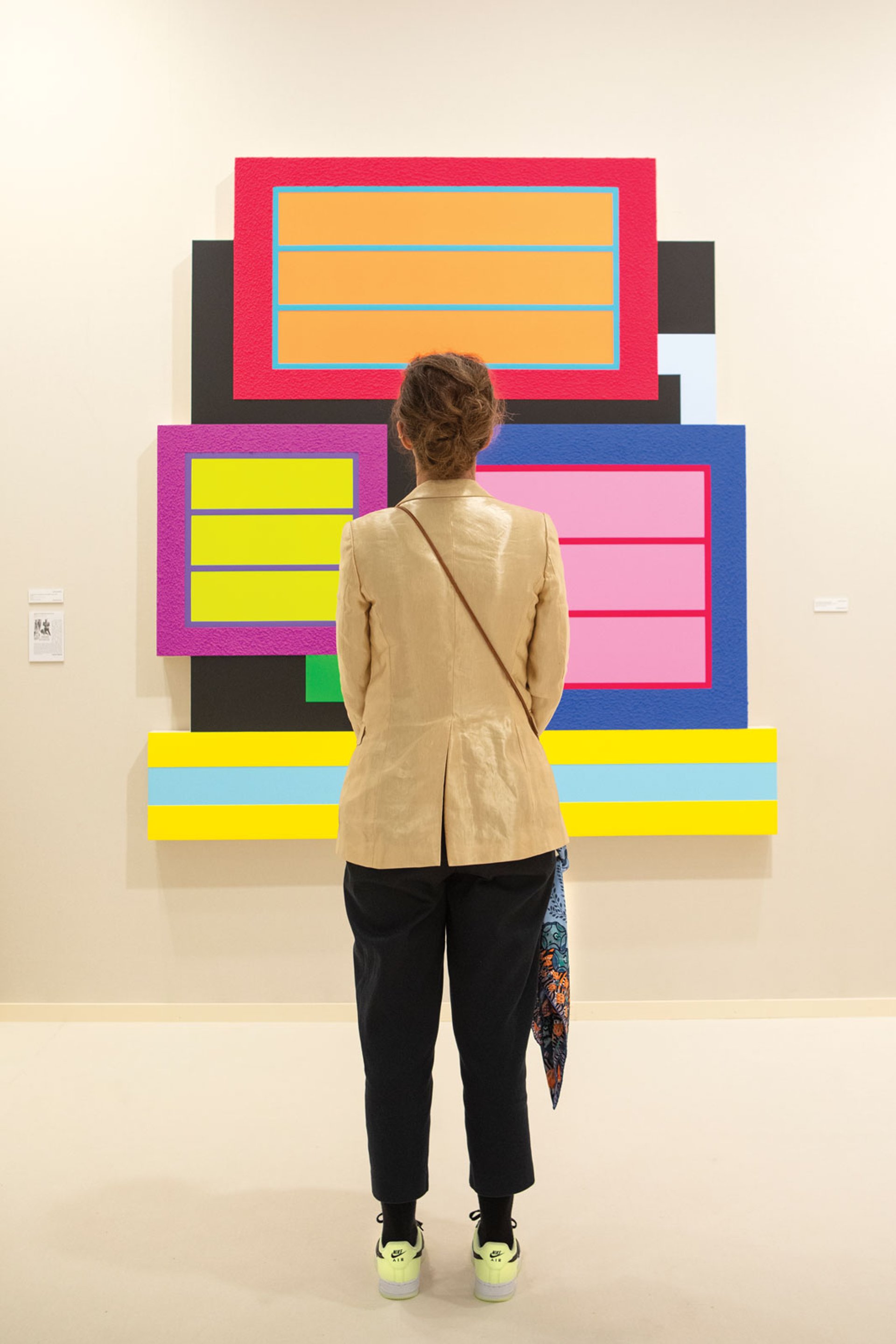
A visitor at Tefaf Maastricht
Tefaf plays it safe
In a normal year, March would mark the first crush of events globally. But pandemic jitters have already sparked the start of a retreat to later in the year—notably the postponement of The European Fine Art Fair (Tefaf) in Maastricht and Art Basel in Hong Kong.
For Tefaf Maastricht, it is a case of once bitten, twice shy. Last year’s edition of the fair was shut early when an exhibitor tested positive for the virus. This year, the fair has already been postponed from mid-March to 31 May to 6 June. It will also be two days shorter than usual. “It is our hope that by pushing the dates of Tefaf Maastricht to later in the spring, we make physical attendance possible, safe and comfortable for our exhibitors and guests,” says Hidde van Seggelen, Tefaf’s chairman. The fourth Tefaf New York Spring at the Park Avenue Armory is, at the time of writing, still going ahead from 7 to 10 May.
Tefaf was not the only fair at which the virus struck: numerous dealers and visitors are believed to have caught it at the Armory Show in New York last March. But the fair had already decided to change its 2021 event from March to 9 to 12 September and move from Piers 90 and 94 to the more central Javits Center in Hudson Yards. The fair's decision to move from March to September is permanent.
A summer crush
Art Basel in Hong Kong, one of the first fairs to be cancelled in 2020 back in February, has made a pre-emptive strike by moving from March to 21 to 23 May (preview days on 19 and 20 May) “in response to the ongoing impact of the global pandemic including travel restrictions”, a spokeswoman says. Whether the fair will be chiefly attended by Asian galleries will depend on “how the global pandemic and travel restrictions develop in the next few months”, the spokeswoman says.
These new dates are only one week before the delayed Tefaf Maastricht (31 May-6 June) and a month before Art Basel, which is still due to go ahead in Switzerland from 17 to 20 June. But they are also painfully close to Frieze New York (7-9 May), which will leave the somewhat isolated Randall’s Island for the first time since it launched in 2012 and host a streamlined version with around 60 participating galleries in the non-profit cultural institution The Shed, in Manhattan’s Hudson Yards neighbourhood.
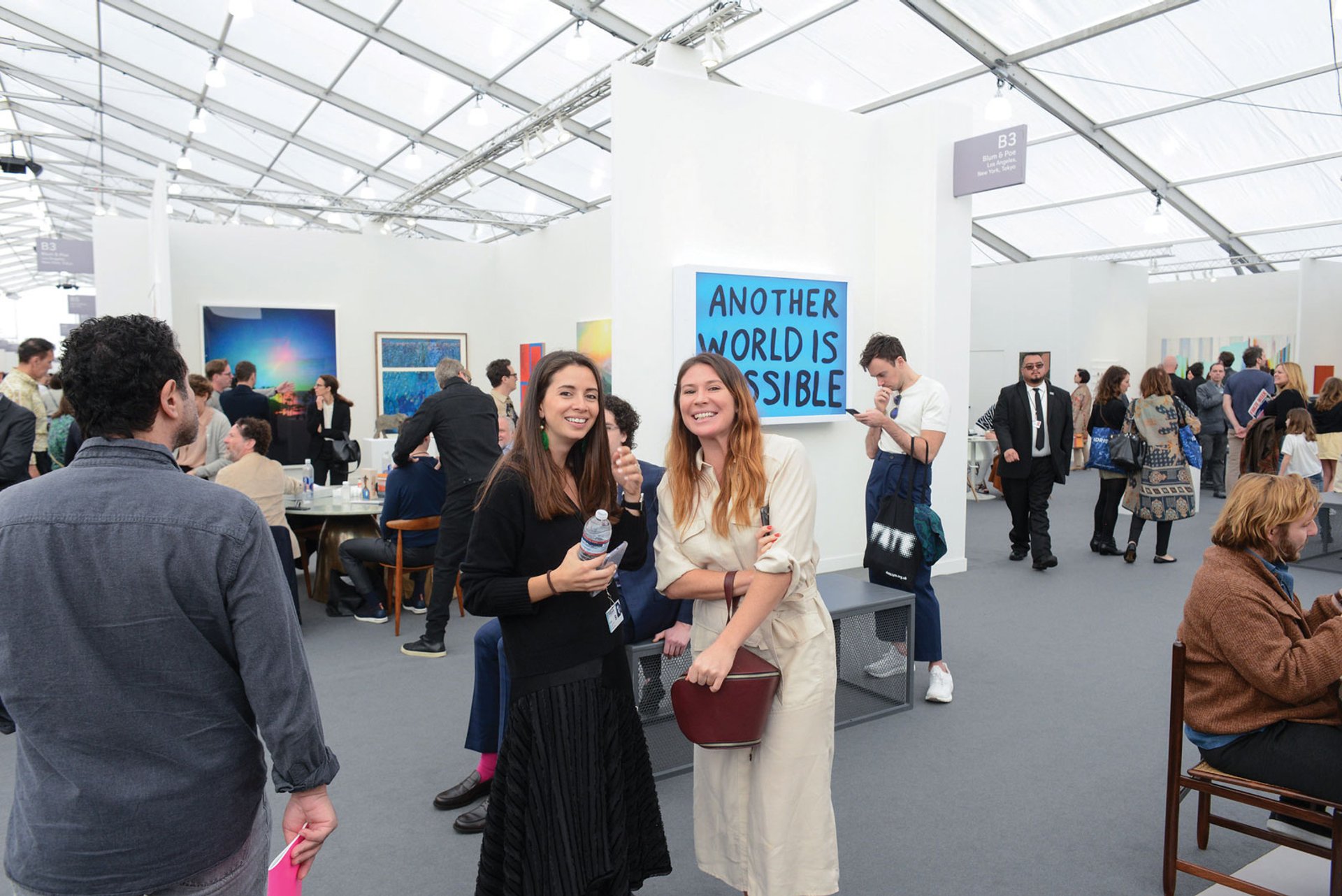
Is another world possible? Visitors at Frieze LA in February 2020
Frieze finds cause to celebrate
Meanwhile, it is all action but no lights or cameras for the third edition of Frieze Los Angeles. Shifting from February to 26 to 29 July, the fair will leave its usual home in Paramount Studios—which is dealing with a backlog in movie production due to the pandemic—to adopt a “nomadic” format and take over a number of galleries, empty spaces and architecturally significant sites around the city. Frieze’s newly appointed Americas director Rebecca Ann Siegel says that the fair will return to its February slot in 2022.
Frieze London, which was forced to cancel its 2020 edition in the autumn, is still due to take place in October 2021. Frieze has added cause for celebration: it will be marking the 30th anniversary of its original incarnation, Frieze magazine, with a three-day digital festival organised by its editors that will “look at the art that has defined the last three decades”, a Frieze spokeswoman says.
UPDATE (2 January): This article was amended to include correct information regarding the Armory Show.


